-
Templates
1099 FormsAccurately report 1099 information returns and ensure IRS filing with easeExplore all templatesW-9 W-8 FormsEasily manage and share taxpayer details to streamline payments and meet IRS requirements with confidenceExplore all templatesOther Tax FormsFillable tax forms simplify and speed up your tax filing process and aid with recordkeeping.Explore all templatesReal EstateReal estate templates for all cases, from sale to rentals, save you a lot of time and effort.Explore all templatesLogisticsSimplify your trucking and logistics paperwork with our ready-to-use transportation and freight templates.Explore all templatesMedicalMedical forms help you keep patient documentation organized and secure.Explore all templatesBill of SaleBill of Sale templates streamline the transfer of ownership with clarity and protection.Explore all templatesContractsVarious contract templates ensure efficient and clear legal transactions.Explore all templatesEducationEducational forms and templates enhance the learning experience and student management.Explore all templates
-
Features
FeaturesAI-Enhanced Document Solutions for Contractor-Client Success and IRS ComplianceExplore all featuresAI Summarizer Check out the featureAI PDF summarizer makes your document workflow even faster. Ask AI to summarize PDF, assist you with tax forms, complete assignments, and more using just one tool.Sign PDF Check out the featurePDFLiner gives the opportunity to sign documents online, save them, send at once by email or print. Register now, upload your document and e-sign it onlineFill Out PDF Check out the featurePDFLiner provides different tools for filling in PDF forms. All you need is to register, upload the necessary document and start filling it out.Draw on a PDF Check out the featureDraw lines, circles, and other drawings on PDF using tools of PDFLiner online. Streamline your document editing process, speeding up your productivity
- Solutions
- Features
- Blog
- Support
- Pricing
Why Would the IRS Audit You: Top 7 Reasons
.png)
Dmytro Serhiiev
Last Update: Dec 28, 2024
In this post, we let you in on a critical aspect of tax compliance — what causes an IRS audit. Understanding the main reasons behind these examinations, their implications, and how to effectively deal with them is paramount for individuals and businesses. Let's explore the essential insights to navigate this process with confidence.
Key takeawey
- Key one
- Key two
- ...
What Does It Mean to Get Audited by the IRS?
Getting audited by the IRS means that your tax returns are subject to a thorough examination to ensure accuracy and compliance with tax laws. The IRS selects returns for audit based on various factors, such as discrepancies, red flags, or random selection. So, how does the IRS audit you? The process usually involves these steps:
- Notification. You will receive an official IRS notification informing you of the audit and specifying the items under review.
- Record Gathering. Collect and organize all relevant records, receipts, and documentation supporting your reported income, deductions, and credits.
- Preparation. Review your tax return and familiarize yourself with the to-be-inspected areas to prepare for the interview.
- In-Person or Correspondence Audit. Depending on the complexity of the examination, it can be conducted either through mail or in-person at an IRS office.
- Documentation Presentation. During the audit, present the requested documents and answer any questions about your tax return.
- Review of Findings. The IRS will assess the information provided and determine if adjustments or additional taxes are warranted.
- Appeal (if necessary). If you disagree with the audit findings, you have the right to appeal to the IRS or go through the legal process.
Top 7 Reasons for IRS Audits
Below, we will explore the main reasons for IRS examinations, shedding light on the factors that may trigger a closer investigation from the tax authorities. Understanding these reasons can help individuals and businesses proactively address potential audit risks and maintain tax compliance with confidence.
1. Underreported income

When taxpayers fail to report all their earnings, it raises red flags for the IRS. For example, a freelancer who neglects to include cash payments received for services rendered or a business owner omitting income from online sales may face audit risks.
Similarly, individuals with complex investment portfolios might overlook reporting dividend income, leading to a potential investigation. Ensuring accurate income reporting and using only legal methods to maximize tax returns are crucial to avoid audit complications. Keeping detailed records and seeking professional tax advice can help mitigate the risk of underreported income and potential IRS checkups.
2. Typos and mistakes

Typos and mistakes in tax returns can inadvertently attract the attention of the IRS, potentially leading to examinations. These errors might occur due to oversight, miscalculations, or incorrect data entry. Here are some examples of mistakes that could trigger an IRS audit:
- Mathematical Errors. Simple calculation mistakes in reporting income, deductions, or credits.
- Filing Status Errors. Selecting an incorrect filing status can impact tax liability.
- Omitted Information. Failure to include all sources of income, such as freelance earnings or interest income.
- Mismatched Information. Disparities between reported income and info provided by employers or financial entities.
- Forgotten Deductions. Neglecting eligible deductions or claiming excessive ones.
Avoiding these errors and double-checking tax returns can significantly reduce the likelihood of an IRS audit. Tax preparation checklists and platforms like PDFLiner can enhance accuracy and compliance with tax regulations.
3. High charitable donations

While charitable donations are commendable, claiming excessively high deductions in tax returns might raise eyebrows at the IRS. Here are some examples of scenarios where large charitable deductions can prompt closer scrutiny:
- Disproportionate Income-to-Donation Ratio. When a taxpayer claims substantial charitable deductions that seem disproportionate to their reported income.
- Inflated Valuations. Overstating the value of donated items, such as clothing or household goods, can draw attention.
- Lack of Documentation. Failing to provide proper documentation, like receipts or acknowledgment letters from charities, can lead to questions.
To avoid IRS audits while supporting charitable causes, maintain accurate records, ensure donations align with financial capabilities, and adhere to IRS guidelines. Being transparent and having proper documentation will help demonstrate the legitimacy of charitable deductions.
4. Overdeducting

Overdeducting or claiming excessive deductions on tax returns can trigger IRS investigations. While taxpayers are entitled to deductions, it's essential to stay within the official guidelines to avoid audit risks. Here are some examples of situations where overdeducting may lead to IRS examinations:
- Business Expenses. Inflating business-related deductions, such as travel or office expenses, beyond actual costs.
- Home Office Deductions. Claiming inflated deductions for a home office that does not meet IRS criteria.
- Rental Property Expenses. Overstating expenses related to rental properties to lower tax liability.
To prevent audit complications, ensure accurate deductions supported by proper documentation, and comply with IRS regulations. Seeking professional tax advice and understanding deduction limits can help maintain tax compliance and reduce the overall IRS audit percentage.
5. Adding a non-existent dependent

Including a non-existent dependent to claim tax benefits can be a significant red flag for the authorities. Such fraudulent practices can lead to investigations and penalties. Here are some examples where taxpayers have falsely claimed non-existent dependents:
- Fictitious Family Members. Inventing dependents to increase tax credits, like the Child Tax Credit or Earned Income Tax Credit.
- Unauthorized Dependents. Claiming individuals who do not meet the criteria for dependents, such as friends or unrelated individuals.
- Divorced or Estranged Dependents. Claiming dependents who are no longer eligible due to divorce or living separately.
Avoid the potential legal consequences of IRS audits by accurately reporting dependents, ensuring they meet the qualifying criteria, and providing appropriate documentation. Integrity in tax reporting is vital to maintain compliance and avoid unnecessary examination risks.
6. Neat, round numbers

Using neat, round numbers in your returns can grab the IRS's attention as it appears less realistic than precise figures. While rounding is allowed, excessive use of round numbers may raise suspicion. Here's how it works:
- Uniform Deductions. Claiming deductions in round amounts, like $1,000, instead of actual expenses.
- Even Income Reporting. Reporting income in neat numbers, such as $50,000, instead of more precise figures.
To reduce the risk of audits, maintain accurate records with precise figures, and round only when appropriate. Consistency and supporting documentation can lend credibility to your returns and decrease the likelihood of IRS investigations. Striking a balance between rounding for simplicity and maintaining detailed accuracy is crucial to avoid unnecessary audit triggers.
7. Cash-only business

Operating a cash-only business can raise concerns for the IRS due to the potential of unreported income and tax evasion. Here are reasons why a cash-only business might attract IRS audits by income:
- Lack of Paper Trail. Cash transactions might not leave a clear paper trail, leading to difficulties in verifying income and expenses.
- Underreporting Income. The temptation to underreport cash income can be higher, increasing the likelihood of examination risks.
- Inconsistent Records. Inadequate record-keeping can make it challenging to track financial activities accurately.
To prevent investigations, maintain detailed and accurate records of all transactions, including cash receipts and expenses. Implement robust bookkeeping practices and consider using electronic payment methods to create a transparent financial trail for your cash-based business. By demonstrating transparency and compliance, you can avoid unnecessary IRS scrutiny.
IRS Audit Rates: the Details Behind the Decline
A fairly recent report from the Government Accountability Office reveals a substantial drop in IRS audit rates for individual taxpayers' returns over the past decade. Key findings from the report include:
- On average, individual tax returns were audited over three times more often in 2010 (0.9 percent) compared to 2019 (0.25 percent).
- Taxpayers with incomes between $200,000 and $500,000 witnessed the most significant decrease, with audit rates plummeting by 92%, from 2.3% in 2010 to 0.2% in 2019.
- High-income taxpayers earning $10 million or more experienced an 81% reduction in audit rates, declining from 21.2% in 2010 to just 3.9% in 2019.
The decline in the IRS audits per year can have both positive and negative implications:
- Good news for tax cheats. The drop in investigations may embolden non-compliant individuals to underreport their income and evade taxes.
- Bad news for the Treasury. With fewer audits, there's a risk of increased tax revenue loss due to underreported income.
Factors contributing to the examination rate decline include IRS staffing shortages and reduced funding, leading to attrition and a decrease in tax examiners. The pending retirement of more examiners further strains the IRS's ability to conduct audits promptly.
This IRS audit statistics highlights the importance of voluntary taxpayer compliance with tax laws. While the drop may be favorable for some, it underscores the significance of fair and robust tax enforcement to maintain tax revenue integrity.
Getting Audited by the IRS: Useful Preparation Tips
Facing an IRS examination can be a daunting prospect, but being well-prepared can alleviate stress and ensure a smoother process. Here are some valuable tips to help you be prepared and navigate the process successfully:
- Organize Your Records. Gather all relevant tax documents, receipts, and financial records to support the items on your return. Proper organization is key to providing accurate information during the audit.
- Understand the Issue. Familiarize yourself with the specific areas under scrutiny in your return. Knowing the focus of the examination allows you to address the IRS's concerns effectively.
- Seek Professional Advice. Consider engaging a tax professional or a tax advisor to guide you through the investigation process. Their expertise can help you present your case comprehensively.
- Be Prompt and Responsive. Respond to the IRS audit notice promptly and cooperate with all requests for information. Timely communication can prevent unnecessary delays.
- Stay Calm and Respectful. Approach the examination with a calm demeanor and treat IRS auditors respectfully. A courteous attitude can foster a more positive and cooperative environment.
- Be Honest and Transparent. Provide accurate and truthful information throughout the process. Dishonesty or withholding relevant details can exacerbate the situation.
- Store Documentation Securely. A cloud-based service like PDFLiner to store your tax-related documentation offers convenience and security. Tagging and sharing documents with your tax advisor simplifies the audit preparation process.
By following these preparation tips, you can feel more confident and in control during an IRS examination. Remember that audits are a part of the tax compliance process, and with proper preparation, you can navigate the situation smoothly and demonstrate your commitment to tax integrity.
FAQ
How does the IRS audit you?
The IRS conducts audits by selecting tax returns for examination based on various factors, such as discrepancies or red flags. Examinations can be conducted through mail or in-person, with auditors requesting supporting documentation to verify the accuracy of reported information.
How long does a tax audit take?
The duration varies based on the complexity of the procedure and the information requested by the IRS. In general, IRS audits 2023 can range from a few weeks to several months, depending on the specific circumstances and cooperation from the taxpayer.
Who gets audited by the IRS the most?
Higher-income taxpayers are generally investigated more frequently by the IRS. However, individuals who claim the Earned Income Tax Credit (EITC), a refundable credit for low to moderate-income individuals, also face higher audit rates than the average taxpayer.
How many times can you be audited?
There is no set limit on how many times an individual can be audited by the IRS. The possibility of being examined exists each tax year, depending on various factors like tax return complexity and compliance.
Is it a big deal to be audited?
Being audited by the authorities can be a significant matter, as it involves a thorough examination of your tax returns. While not everyone experiences drastic consequences, these investigations may lead to financial and legal repercussions if discrepancies are found. Proper preparation and cooperation are essential for handling it all like a pro.














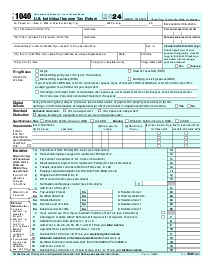
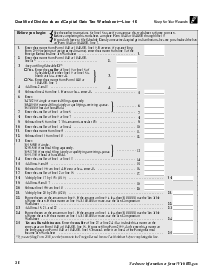
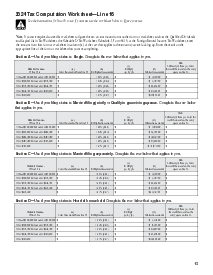


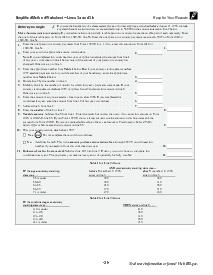

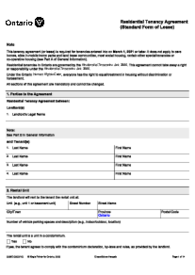
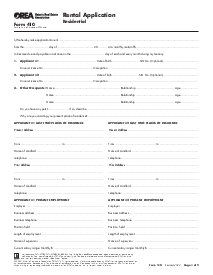
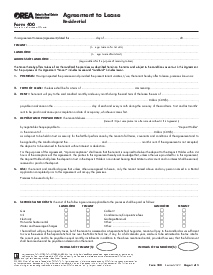

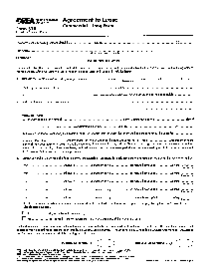
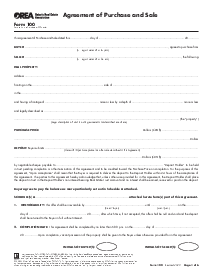

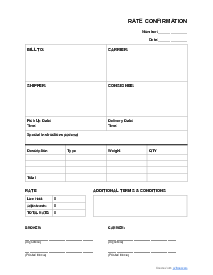
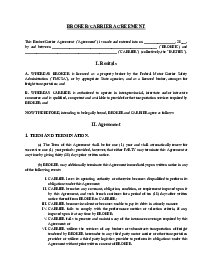

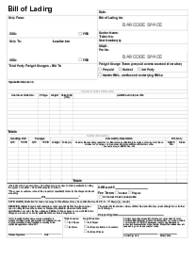
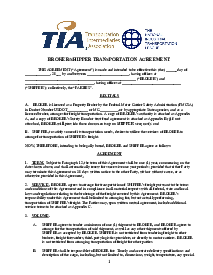
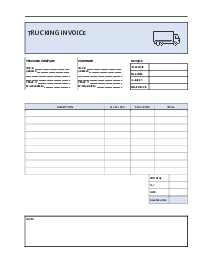
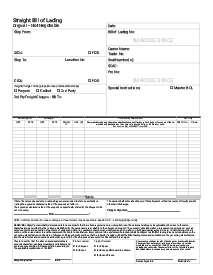
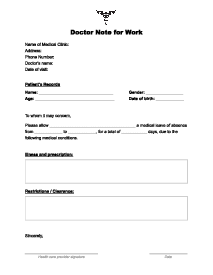


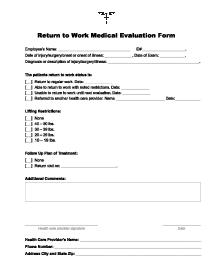


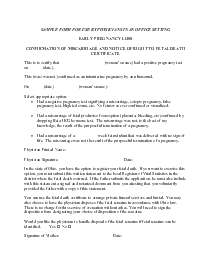
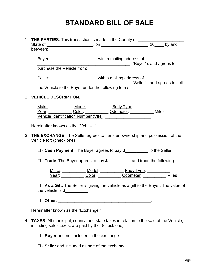








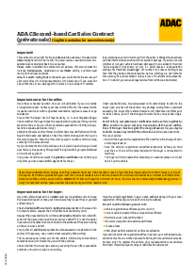







.png)